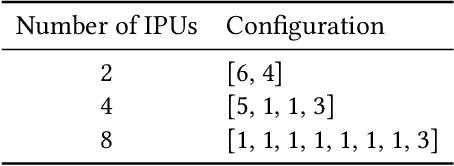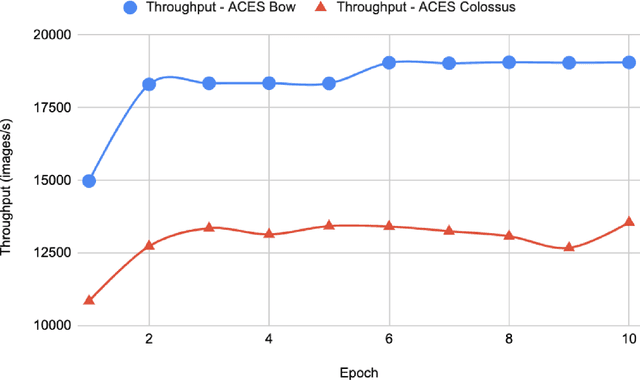Dhruva K. Chakravorty
Insight Gained from Migrating a Machine Learning Model to Intelligence Processing Units
Apr 16, 2024



Abstract:The discoveries in this paper show that Intelligence Processing Units (IPUs) offer a viable accelerator alternative to GPUs for machine learning (ML) applications within the fields of materials science and battery research. We investigate the process of migrating a model from GPU to IPU and explore several optimization techniques, including pipelining and gradient accumulation, aimed at enhancing the performance of IPU-based models. Furthermore, we have effectively migrated a specialized model to the IPU platform. This model is employed for predicting effective conductivity, a parameter crucial in ion transport processes, which govern the performance of multiple charge and discharge cycles of batteries. The model utilizes a Convolutional Neural Network (CNN) architecture to perform prediction tasks for effective conductivity. The performance of this model on the IPU is found to be comparable to its execution on GPUs. We also analyze the utilization and performance of Graphcore's Bow IPU. Through benchmark tests, we observe significantly improved performance with the Bow IPU when compared to its predecessor, the Colossus IPU.
 Add to Chrome
Add to Chrome Add to Firefox
Add to Firefox Add to Edge
Add to Edge